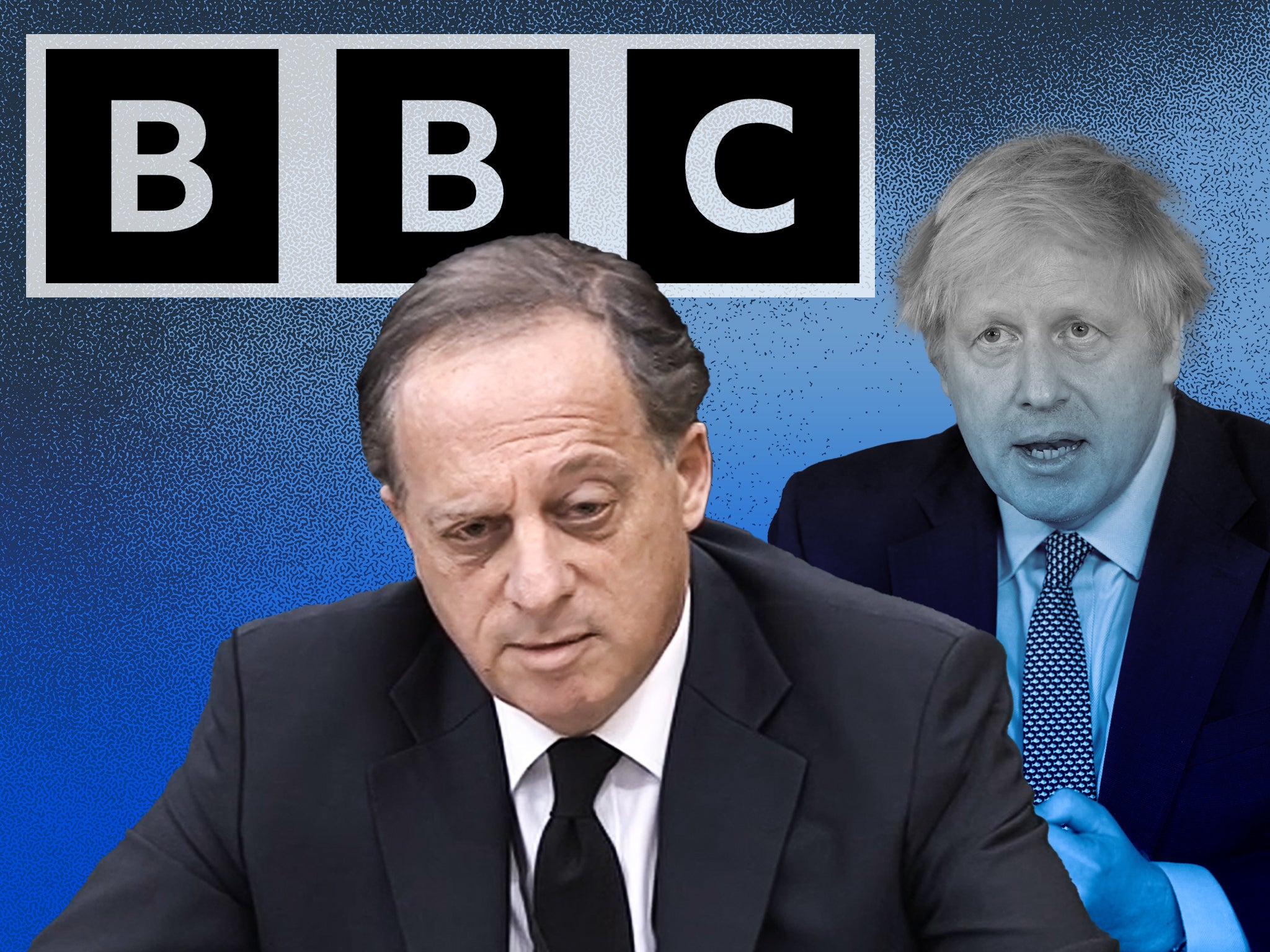BBC chair Richard Sharp has resigned after a report found he failed to declare two conflict of interests during his appointment process.
Mr Sharp, a Tory donor, had helped arrange a meeting for Boris Johnson top meet with someone who could give him a personal loan.
He also told the prime minister in advance that he wanted the job – and the appointment panel was told he was the "only" candidate supported by ministers.
The report, written by barrister Adam Heppinstall, makes a number of points about how public appointments are made in the UK in 2023. Some of the key points are below:
1) Sharp had two undisclosed conflicts of interests
The report found that Richard Sharp failed to disclose two potential conflicts of interest during the application process to be BBC chair.
One was that he was making introductions to help the prime minister with his "personal finances".
But the inquiry also found that Sharp had another conflict of interest - he had told the prime minister in advance that he wanted to be BBC chair.
2) Sharp accepts one of the conflicts of interest but not the other
The now former BBC chair "does not consider" that telling Boris Johnson he wanted to be BBC chair amounts to a conflict of interest.
But he does accept that he should have explained to the appointment panel that he was making an introduction to help Mr Johnson with his finances.
"He says that his failure to disclose was entirely inadvertent", the report says.
3) The issue was that Sharp did not disclose the conflicts
The report says that neither of these issues ought necessarily have been a dealbreaker for Sharp's appointment as BBC chair.
It says that "a potential conflict of interest should not preclude a candidate from being shortlisted or appointed, provided that it is declared, and appropriate arrangements are made".
The issue was that they were not declared. The chair of the appointment panel "was not made aware of these potential perceived conflicts of interests and therefore was not able to seek advice so that the Panel could advise Ministers, accordingly, as required by the Governance Code".
4) The breach didn't automatically mean Sharp lost his job
In the event, Sharp resigned swiftly after the report was released.
However, he could potentially have clung on. The report says that "a breach of the Governance Code does not invalidate an appointment".
It was up to ministers and the BBC board to consider what should happen next.
5) The report wants briefing the press about public appointments to be banned
The report is scathing about "leaks and briefing to the press" about who the government's preferred candidates are for public appointments.
Sometimes the government will tell journalists who they want for certain jobs even while the supposedly impartial application process is continuing.
"In this case such pre-briefing may well have discouraged people from applying for this role," the report states.
"It can also undermine efforts made to increase diversity."
It also notes that "a suggestion was made by civil servants to Ministers that the effects of pre-briefing could be mitigated by calling potential candidates and alerting them to the open application" but this was "not taken up by ministers", a development the inquiry describes as "unfortunate"
"Leaks and pre-briefing of Ministers’ preferred candidates for public appointments can undermine the steps taken by officials to try to ensure an appointment process is a fair and open competition, in accordance with the Code" it concludes.
6) The appointment panel was told Sharp was the only candidate supported by the government
Just how independent are appointment panels?
The appointment panel had a shortlist of 23 applications, which was then cut down to eight people.
But the chair of the panel was told about No.10’s support for Richard Sharp and it was started "that he was the only candidate identified to the Panel as having his candidacy supported by Ministers".
In the end Sharp was selected. Was it any surprise?

Join our commenting forum
Join thought-provoking conversations, follow other Independent readers and see their replies
Comments